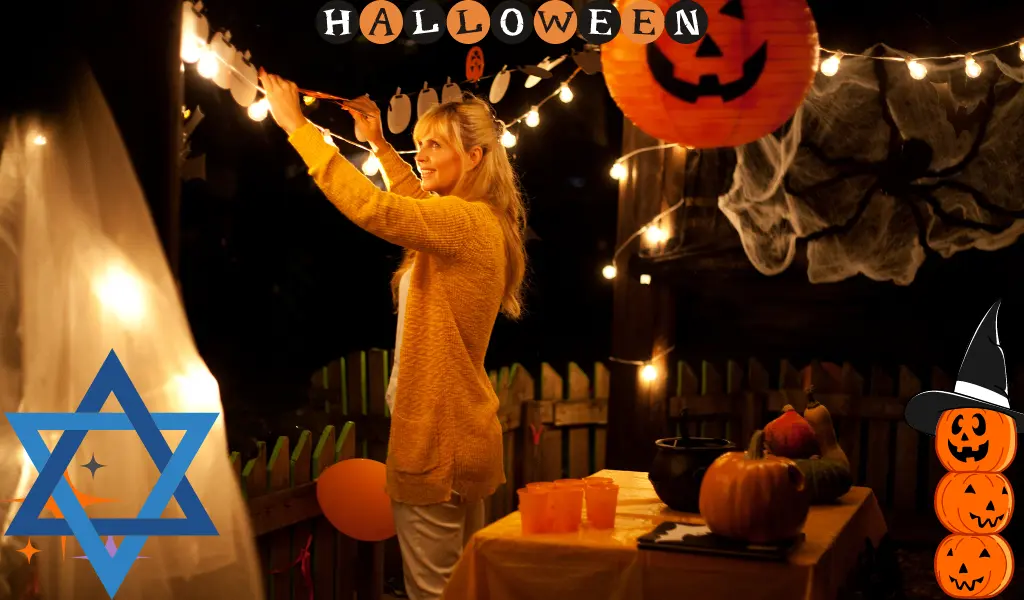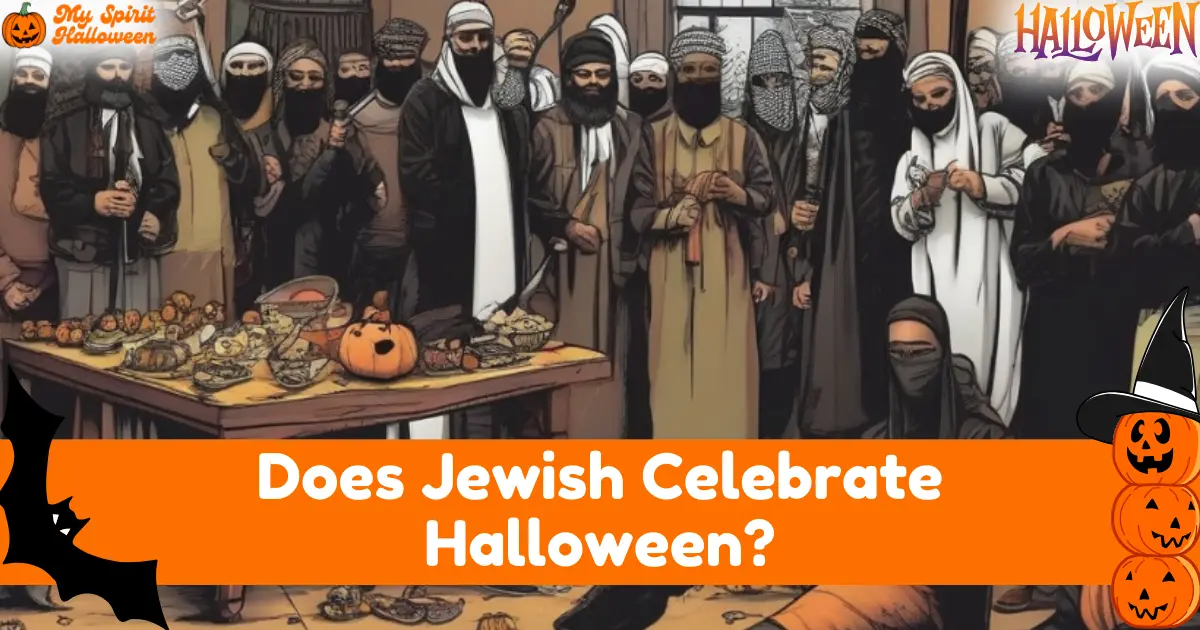
Halloween, a widely celebrated holiday in many parts of the world, raises an interesting question when considering different cultural and religious perspectives: Does Jewish celebrate Halloween?
The Jewish community, known for its rich traditions and religious observances, may have diverse views on this holiday.
In this article, we will explore the Jewish perspective on Halloween, examining the reasons behind the varying attitudes and practices within the community.
Jewish Views on Halloween: Tradition vs. Modern Culture
1. Religious Considerations in the Jewish Faith
Judaism places great importance on the observance of religious holidays and traditions, which are central to the faith.
Major Jewish holidays such as Yom Kippur, Rosh Hashanah, and Hanukkah are observed with specific rituals and prayers, deeply rooted in the Jewish religious calendar.
Given this emphasis on religious observance, Halloween, which has origins in pagan rituals, might be viewed with skepticism or disinterest by some Jewish individuals.
2. Cultural vs. Religious Identity
The Jewish community is diverse, encompassing a wide range of beliefs and practices. For some, the decision to participate in Halloween might be seen more as a cultural activity rather than a religious one.
These individuals may see no conflict in celebrating Halloween as a fun, secular event, separate from their religious observance.
Others, however, might feel that Halloween’s origins and associations with non-Jewish religious practices make it incompatible with their faith.


Common Concerns Among Jewish Communities
1. Religious Holidays and Halloween
One reason some Jewish families may choose not to celebrate Halloween is its proximity to significant Jewish holidays. For instance, Yom Kippur, the holiest day in Judaism, often falls around the same time as Halloween.
This can make Halloween seem out of place or even inappropriate to observe when Jewish families are focused on spiritual reflection and atonement.
Additionally, the focus on religious observance during this period often leaves little room for secular celebrations like Halloween.
2. Pagan Origins of Halloween
The pagan roots of Halloween are another concern for some Jewish individuals. Halloween’s connection to ancient rituals and beliefs that are not aligned with Jewish teachings can lead to a reluctance to participate in the holiday.
For those who adhere strictly to Jewish religious practices, celebrating a holiday with pagan origins may feel contradictory to their faith.
Moreover, the emphasis on maintaining the sanctity of Jewish traditions may further discourage involvement in a holiday with non-Jewish origins.
Secular Jewish Families and Halloween
Despite the concerns mentioned, many secular Jewish families do participate in Halloween. For these families, Halloween is seen as a fun, cultural event rather than a religious one.
They may enjoy the festivities, such as dressing up in costumes and going trick-or-treating, without feeling that it conflicts with their Jewish identity. In this context, Halloween is just another opportunity for social engagement and community fun.
Additionally, participating in Halloween allows these families to connect with their neighbors and friends, fostering a sense of belonging within the broader community.
Alternatives to Halloween in Jewish Communities
For those who prefer not to celebrate Halloween, there are often alternative activities organized within the Jewish community. Some Jewish families and institutions create events that align more closely with Jewish traditions.
These might include family gatherings, community events, or even celebrations of Jewish holidays like Purim, which also features costumes and festivities but is rooted in Jewish history and religion.

Celebrating Halloween in Israel
1. Does the Jewish Celebrate Halloween in Israel?
In Israel, Halloween is not widely celebrated, and it is often seen as a foreign or Western holiday. The Jewish state has its own set of holidays and traditions that take precedence.
While some Westernized areas or communities may acknowledge Halloween, it is generally not a significant event in Israeli culture.
Additionally, the focus on national and religious holidays like Yom Kippur, Hanukkah, and Purim often overshadows interest in celebrating Halloween.
2. Influence of Western Culture on Halloween in Israel
Western influence has brought some awareness of Halloween to Israel, particularly among younger generations and in more cosmopolitan areas. However, the holiday has not gained the same popularity as it has in the United States or Europe.
In Israel, Jewish holidays like Purim, which involves costumes and festivities, hold more cultural significance and are celebrated enthusiastically.
Furthermore, the Israeli emphasis on maintaining and preserving Jewish cultural heritage often limits the widespread adoption of non-Jewish holidays like Halloween.
The Role of Jewish Schools and Synagogues
Jewish schools and synagogues often play a crucial role in guiding families on whether to participate in Halloween. Some institutions may advise against celebrating Halloween, citing its pagan origins and lack of relevance to Jewish traditions.
Others may take a more neutral stance, allowing families to make their own decisions based on their level of religious observance and cultural preferences.
Additionally, these institutions may offer alternative events or educational programs during Halloween to help families maintain a connection to their Jewish identity.
They may also provide resources and discussions that help families navigate the cultural pressures of celebrating non-Jewish holidays while upholding their religious values.
Conclusion
whether or not Jewish families choose to celebrate Halloween varies based on individual beliefs, religious practices, and cultural perspectives.
While some may see it as a fun, secular activity, others may avoid it due to its pagan origins and lack of connection to Jewish traditions. Jewish schools, synagogues, and community leaders often play an important role in guiding these decisions.
Ultimately, the choice to participate in Halloween is a personal one, influenced by how families balance their Jewish identity with broader cultural experiences.
FAQs
Halloween is not widely celebrated in Israel and is often seen as a foreign or Western holiday. Jewish holidays like Purim are more culturally significant and widely celebrated, overshadowing any interest in Halloween.
Jewish schools and synagogues often guide families on Halloween, with some advising against it due to its pagan roots. Others may take a neutral stance, leaving the decision up to individual families based on their religious and cultural preferences
Some Jewish families may choose not to celebrate Halloween because of its pagan origins and the proximity of Jewish holidays like Yom Kippur. These factors can make Halloween seem out of place or inappropriate within the context of Jewish tradition.
Yes, Jewish culture has holidays like Purim, which involves costumes, festivities, and a focus on community. For those who prefer not to celebrate Halloween, Purim offers a culturally relevant alternative that aligns with Jewish traditions.
Related Post
- Does France Celebrate Halloween?
- Does Mexico Celebrate Halloween?
- Does Italy Celebrate Halloween?
- What Religion Doesn’t Celebrate Halloween?
- Does Japan Celebrate Halloween?


